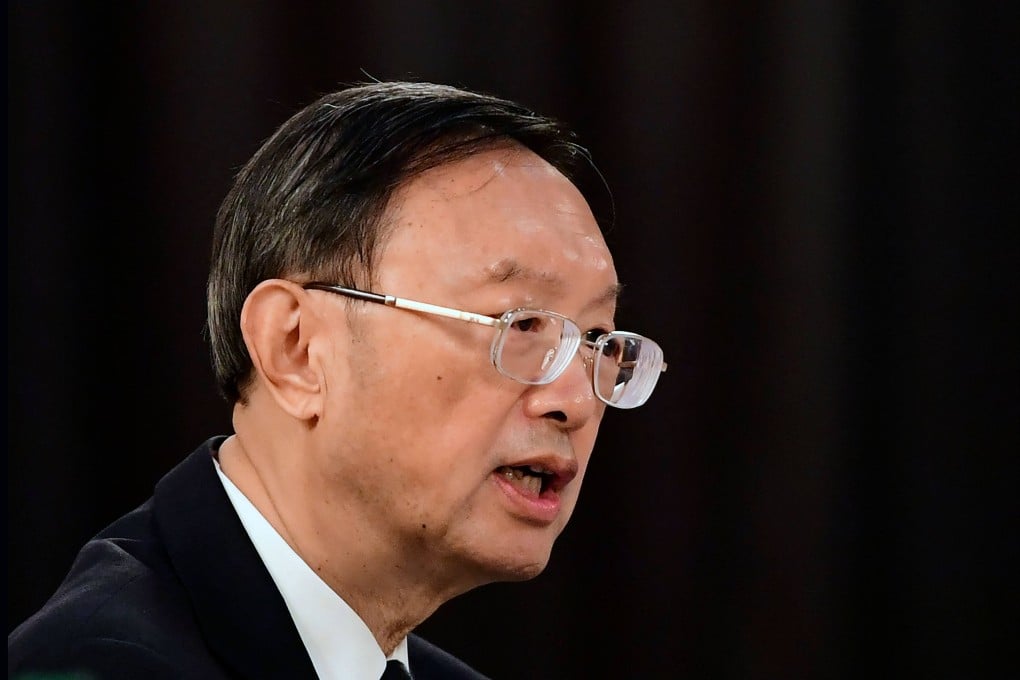Advertisement
China ‘will not accept’ US challenges to its Communist politics, leaders
- ‘It is normal for China and the US to have some differences, but the key is to have mutual respect,’ Beijing’s top diplomat Yang Jiechi says in People’s Daily article
- China has no intention to promote its political system or reject the democratic systems of the United States, he says
3-MIN READ3-MIN
99+

China’s most senior diplomat has called for greater cooperation with the United States to ease tensions between them, but says Beijing will not tolerate any challenge to its political system or leadership.
Yang Jiechi, a Politburo member regarded as President Xi Jinping’s most trusted foreign policy aide, said in an article published in the Communist Party mouthpiece People’s Daily on Thursday that the two sides needed to “constructively handle” relations if they were to make a breakthrough akin to the ping-pong diplomacy in the 1970s that paved the way the establishment of formal diplomatic ties in 1979.
“Fifty years ago, China and the US were able to break the ice and establish diplomatic relations after a long period of confrontation,” he said.
Advertisement
“It is normal for China and the US to have some differences, but the key is to have mutual respect, equal treatment, and control and handle China-US relations in a constructive way to ensure it is on the right path of development.”
While China had no intention to promote its own political system or development path, or to reject the democratic systems of the United States and other countries, Yang said that “if anyone challenges the Chinese Communist Party or China’s political system and leadership, the Chinese people will definitely not accept this”.
Advertisement
Advertisement
Select Voice
Select Speed
1.00x
